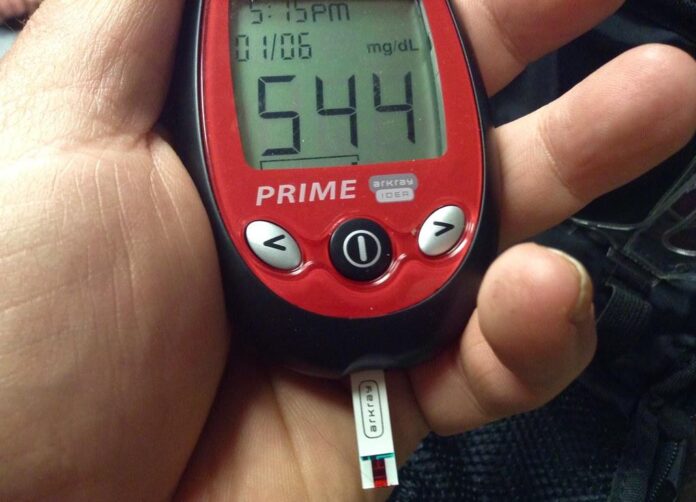
High blood sugar, also known as hyperglycemia, is a common condition among individuals with diabetes. Keeping blood sugar levels in check is essential for managing diabetes and avoiding complications associated with high blood sugar. Here are some tips for managing high blood sugar and preventing complications:
1. Monitor your blood sugar levels regularly: It is crucial to monitor your blood sugar levels regularly using a blood glucose monitor. Keeping track of your blood sugar levels will help you understand how your body responds to different foods, medications, and activities. It will also help you identify patterns and make adjustments to your treatment plan accordingly.
2. Stick to a healthy diet: Eating a balanced diet is essential for managing high blood sugar levels. Focus on consuming whole foods such as fruits, vegetables, whole grains, lean proteins, and healthy fats. Avoid foods high in sugar, refined carbohydrates, and saturated fats, as they can cause spikes in blood sugar levels. Opt for low-glycemic index foods that release glucose slowly into the bloodstream, helping to maintain stable blood sugar levels.
3. Stay hydrated: Drinking plenty of water is important for managing high blood sugar levels. Dehydration can cause blood sugar levels to rise, so it is essential to drink water regularly throughout the day. Aim to drink at least eight 8-ounce glasses of water daily, and more if you are exercising or in hot weather.
4. Exercise regularly: Physical activity can help lower blood sugar levels by increasing the body’s sensitivity to insulin. Aim for at least 150 minutes of moderate-intensity exercise per week, such as brisk walking, cycling, swimming, or strength training. Incorporating regular exercise into your routine can also help you maintain a healthy weight and reduce the risk of complications associated with high blood sugar.
5. Take medications as prescribed: If you have diabetes, it is essential to take your medications as prescribed by your healthcare provider. Medications such as insulin or oral hypoglycemic agents help lower blood sugar levels and prevent complications associated with high blood sugar. Follow your healthcare provider’s instructions regarding dosages and timing of medications to ensure optimal results.
6. Manage stress: Stress can contribute to high blood sugar levels, as the body releases hormones that raise blood glucose levels in response to stress. Find healthy ways to manage stress, such as practicing mindfulness, deep breathing exercises, yoga, or meditation. Engaging in activities that you enjoy can also help reduce stress and improve overall well-being.
7. Get enough sleep: Lack of sleep can disrupt blood sugar levels and contribute to insulin resistance, leading to high blood sugar levels. Aim to get at least 7-8 hours of quality sleep each night to support overall health and manage blood sugar levels effectively. Establish a bedtime routine, avoid caffeine and electronic devices before bed, and create a comfortable sleep environment to promote restful sleep.
8. Work with a healthcare team: Managing high blood sugar levels requires a team approach involving healthcare providers, including doctors, nurses, dietitians, and diabetes educators. Work closely with your healthcare team to develop a personalized treatment plan that addresses your unique needs and goals. Regularly follow up with your healthcare provider to monitor your progress and make adjustments to your treatment plan as needed.
9. Educate yourself about diabetes: Understanding diabetes and how it affects your body can help you make informed decisions about managing your blood sugar levels. Take advantage of resources such as educational materials, support groups, and online forums to learn more about diabetes and connect with others who are managing the condition. Stay up-to-date on the latest developments in diabetes management and treatment to empower yourself to take control of your health.
10. Be proactive about preventing complications: High blood sugar levels can lead to complications such as heart disease, stroke, kidney disease, nerve damage, and vision problems. Take proactive steps to prevent complications by managing your blood sugar levels effectively, following a healthy lifestyle, and attending regular check-ups with your healthcare provider. Monitor your blood pressure, cholesterol levels, and kidney function regularly to identify any potential issues early and take appropriate action to prevent complications.
In conclusion, managing high blood sugar levels and preventing complications requires a comprehensive approach involving healthy lifestyle habits, regular monitoring, medication management, stress reduction, and support from a healthcare team. By following these tips and taking proactive steps to manage your blood sugar levels effectively, you can reduce the risk of complications and live a healthy, fulfilling life with diabetes. Remember that diabetes is a manageable condition, and with the right tools and support, you can take control of your health and well-being.


















